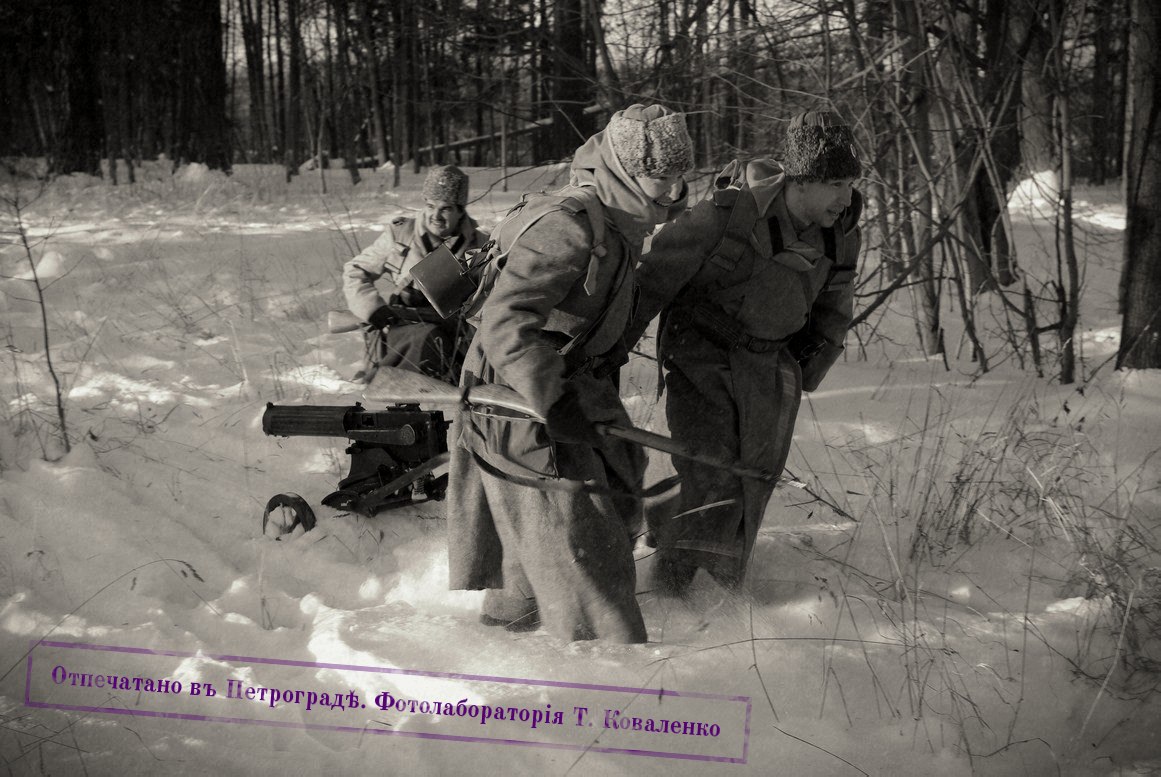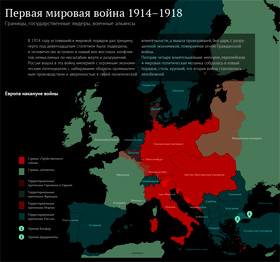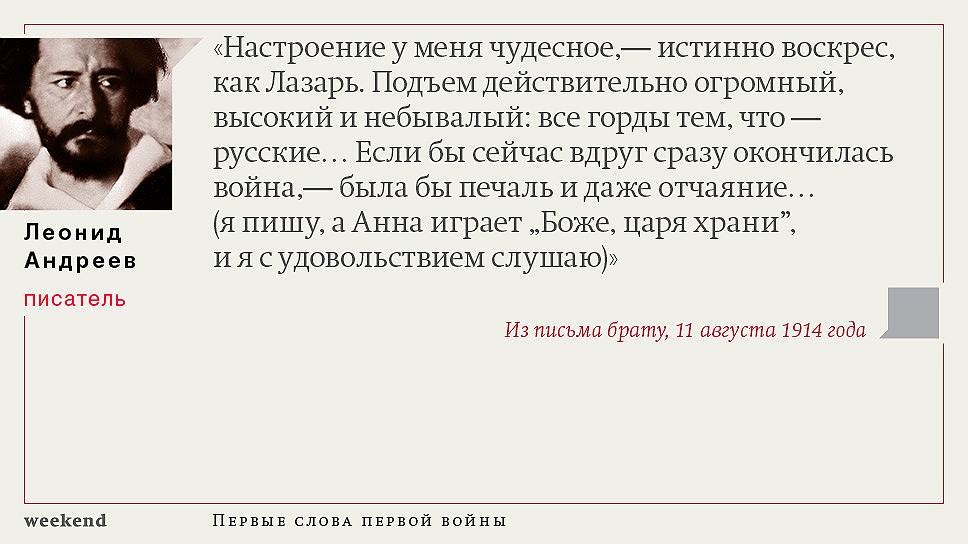Perpetuating the memory of the “forgotten war” and dilemmas of Russian political identity
Russian soldiers in Marseille
In
Login if you are already registered
(no votes) |
(0 votes) |
Dr. of Philosophy, Senior Research Fellow RAS INION, Professor, MGIMO University, Professor, Higher School of Economics, Honorary President, Russian Political Science Association
In recent years, the Russian authorities have been referring more and more often to the country’s “thousand-year-old history”. Not only does this formula set a chronological framework, but it also distils the principle of the narrative enunciated by the state leaders, that is, the historical scheme into which concrete events are fitted. This provides the context of the recent decisions aimed at reviving the memory of World War I.
In recent years, the Russian authorities have been referring more and more often to the country’s “thousand-year-old history”. Not only does this formula set a chronological framework, but it also distils the principle of the narrative enunciated by the state leaders, that is, the historical scheme into which concrete events are fitted. This provides the context of the recent decisions aimed at reviving the memory of World War I.
In the 1990s, official rhetoric was dominated by the theme of “the new Russia”, with the meaning of current political history determined by contrast with the past – primarily the Soviet past, but also the pre-Revolutionary past. The underlying structure of the official narrative changed in the early years of Putin’s presidency: the new Russia was declared the legitimate heir to the “thousand-year-old state”, making continuity of paramount importance. However, choosing the chronological/substantive vector was but a first step towards shaping a narrative that could underpin the community that stands behind the modern Russian state. Constructing such a narrative involves not only a reappraisal of the “difficult” and controversial pages of the collective past, but an enlargement of the list of recognizable symbols, events and figures that embody “our thousand-year-old history”. The latter is all the more relevant, because the system of collective memory inherited from the USSR was the result of a selective approach to history designed to justify the need for a socialist revolution, an approach that today cannot be considered satisfactory for many reasons. But “recalling” the past is intimately linked with its reinterpretation, which is a far greater challenge than the first one, as recent practice has demonstrated.
“A thousand-year-old” history as the basis of Russian identity
Only in recent years, that is, some ten years after the new principle of the official narrative was declared, has the Russian ruling elite started paying serious attention to investing it with substance. Examples include the development of the Concept of the new Teaching Methodology in Russian history [1], the creation of the Russian Historical [2] and Russian Military History societies, declaring 2012 History Year [3], attempts to broaden the range of themes about the past in Presidential speeches, and so on.

Military historical reenactment "The First World
War - The Forgotten Heroes" Museum-Estate
"Priyutino" Leningrad region
One of the most salient examples of this kind is the programme commemorate the centenary of the start of World War I. The issue was raised by President Putin during his visit to the Federation Council six weeks after his inauguration on 7 May 2012. Replying to a question from one of the senators, the President supported the idea of restoring the memory of the “forgotten war”. [4] He outlined a well-defined approach to the interpretation of the event, linking it with the concept of sate patriotism. According to Putin, World War I was forgotten because the country’s “leadership at the time” preferred not to recall its own “national betrayal” that determined the outcome of the war for Russia [5].
Faced with the outbreak of civil war at home, the Bolshevik leadership signed the separate Treaty Brest-Litovsk Peace with Germany, which had de facto lost the war. Some historians see the actions of the Bolsheviks to ensure Russia’s early withdrawal from the war as fulfilling obligations to the German government, which was rendering them financial assistance, a fact confirmed by documents. However, Putin chose not to pursue this conspiracy theory. Instead, he saw “national betrayal” in the actions that deprived Russia of huge chunks of its territory and caused damage to the country’s interests. True, he hastened to add that the Bolshevik leadership “atoned for its guilt before the country during the Second World War, the Great Patriotic War.” [6] Besides, Putin stressed the uniqueness of the situation when “Russia lost this war to the losing side.” [7] In accordance with that pattern of thinking, World War I should be restored in the collective memory of Russians not only as a symbol of the patriotism of the “people who gave their lives for their Motherland”, but also as reaffirmation of the country’s status in global affairs: while actually fighting on the winning side, it was only due to internal political circumstances that it “lost to the losers”.
Preserving the memory of those who died in that war, a memory that practically did not exist .
Further work on the organization of events to commemorate the centenary of the start of World War I has generally followed that line. In December 2012, the theme of the “undeservedly forgotten” war was reflected in Putin’s Address to the Federal Assembly. Stressing the importance of a tradition that “sustains the morale of the Armed Forces”, the President urged the need to build “worthy national monument to the heroes of World War I.” [8] Following this directive, the Moscow Duma allocated a site for the new monument on Poklonnaya Hill opposite the flower clock. And the Russian Military History Society announced a contest of projects for the memorial complex. Two weeks after delivering his address, President Putin approved amendments to the federal law “On Days of Military Honour and Memorable Dates of Russia” adding the Day of Commemoration of the Russian Soldiers Who Died During World War I, which was first celebrated on 1 August 2013 [9]. Thus, the foundations were laid for preserving the memory of those who died in that war, a memory that practically did not exist before. It has to be noted that the majority of countries honour those who died in World War I on 11 November, when the First Armistice at Compiegne was signed between Germany and the Entente. Russia chose the date that it entered into the war. This is not a favourable choice in terms of the calendar cycle: the commemoration date falls during school vacations, which means it cannot be fully exploited in terms of the patriotic education of schoolchildren and university students. What is more, it also falls in the middle of the holiday season, when public attention to political news traditionally dwindles. However, history hardly offers any other options.
What are the chances of the symbolic potential of the “forgotten war” being tapped?
Be that as it may, Putin takes the credit for the inclusion of World War I in the body of the “relevant” past, that is, the past that can be used for political purposes. It is fair to assume that the people who made the decision pursued a dual goal: to foster patriotism and to maintain Russia’s status as a European power (it was particularly important to determine the attitude to the “forgotten war” ahead of international commemorative events). Essentially, this is the second attempt since the introduction of National Unity Day to enlarge the repertoire of politically approved past events, the memory of which was not institutionalized during the Soviet period. What are the chances of its success? Will the symbol of World War I be invested with content that strikes a chord in people’s hearts? Will it live up to the expectations of politicians?
From this writer’s observations, based on a comparative analysis of the practices of many countries, macro-political identity can be formed using events, images, symbols and myths of the past that: a) are firmly lodged in the collective consciousness; b) contribute to a positive image of the community that stems, on the one hand, from its being in tune with the system of cultural perceptions that set value scales, and on the other hand from the role they play in the national narrative; and c) are not the subject of conflicting assessments, whose competition is perceived as a zero sum game. If this is the case, then, “reviving” the memory of the heroes of World War I will be an uphill struggle that is unlikely to succeed in the short term and should be seen as investment in the future.
Introducing a commemorative day and designing a monument are no more than symbolic gestures signalling political intentions.
Vladimir Putin was absolutely right in calling World War I a “forgotten war”. To restore the memory of World War I (or rather, to instil an idea of the War in the consciousness of various social groups) calls for sustained and painstaking work not only on the part of politicians, but also on the part of historians, ethnographers, journalists, teachers, writers, dramatists, filmmakers, publishers, artists, tourist industry workers and people who share an interest in the past. Introducing a commemorative day and designing a monument are no more than symbolic gestures signalling political intentions. They are necessary but not sufficient. For a forgotten past to be “recalled”, it is necessary to awaken a mass movement of memory. People should start wanting to read and write about the war, to make and watch films about it, to search for information, restore cemeteries, delve in archives, raise money for events, etc. Such movements have taken place in many countries. Jubilee celebrations certainly kindle interest in “forgotten” historical dates, but they are only effective if they are bolstered by existing projects of creative elites and movements to remember the past. It is not by chance that preparations for such milestone dates as the centenaries of the Great French Revolution or the American Revolution begin at least ten years in advance. So, Russia is late in remembering World War I. But if the campaign gathers momentum and continues beyond the jubilee celebrations it has a chance, in years to come, to bear fruit in the shape of a consolidated memory of the Russian heroes who died in the war in the minds of considerable social groups. It is undoubtedly a worthy task because a “thousand-year-old” history that is not invested with concrete and recognizable content is a poor basis for a Russian identity.
Resistance of material
At the same time, it is important to understand that any symbol lends itself to an infinite range of interpretations. This is particularly true of an historical event that has met with conflicting assessments by contemporaries and those who came later. Granted, the start of World War I triggered an unprecedented surge of patriotism that brought an ecstatic response from the capital’s intelligentsia. However, the aims of the war were unclear to the masses and the elite alike (heated debates on the issue flared up after Russia had become involved in military actions). A year later, enthusiasm was replaced with apathy which by 1917 had developed into massive protests against the war and the ineffectual political regime. The “national betrayal” of the Bolsheviks was not the only reason the memory of the heroism of Russian soldiers during World War I had not been consolidated in public practices. The unofficial “living” memory of contemporaries about that event revealed diametrically opposite assessments that did not always fit into the canon of the “heroic past” (one only has to read the texts written by émigrés to become aware of it). Therefore, historians who undertake to describe World War I in accordance with the scheme proposed by President Putin are sure to meet with “the resistance of the material”. Although the actions of the Bolsheviks in signing a separate peace treaty can be seen as a “betrayal” with regard to the preceding generations that were “pulling Russian lands together”, and probably with regard to the population of the ceded territories (though it was not perceived in such clear-cut terms in the outlying parts of the Empire), one has to admit that they met the aspirations of many contemporaries who did not want to give their lives for the Tsar or the Allies. Thus, although the history of World War I offers ample material to bolster the theme of heroism highlighted by Vladimir Putin, heroism does not exhaust the topic. Therefore, the symbol will inevitably be invested with various meanings.
Historians who undertake to describe World War I in accordance with the scheme proposed by President Putin are sure to meet with “the resistance of the material”.
This being the case, its usefulness as the underpinning of macro-political identity depends on how compatible the rival interpretations are. Obviously, Russia’s participation in World War I cannot be divorced from the events that followed, i.e., the October Revolution and the Civil War, which are still the subjects of fierce arguments. It is too soon yet to say whether “accord and reconciliation” will be furthered by the formula of “the Great Russian Revolution that went through several stages of development” invented by the authors of the Concept of the New Teaching Methodology in Russian History [10]. However, it cannot be gainsaid that the prospects for the use of the symbol of World War I depend on how it will be built into the approach to the presentation of key 20th century events. Designing such an approach is the task not only of historians, but also of politicians. In the 2000s, Russian politicians preferred to use the past in accordance with the a la carte principle picking out convenient (recognizable, positive and indisputable) events and figures. Although in the absence of a coherent narrative such an approach is logical, it is a shaky basis for macro-political identity.
***
The prospects for the use of the symbol of World War I depend on how it will be built into the approach to the presentation of key 20th century events.
At the same time, building a scheme that would convincingly explain how the present grows out of the past and why, drawing on this experience, we can count on a certain future enables politicians to work even with the “dark” pages of national history. An attractive image of a community is shaped not only by the memory of patently “positive” past events, but also by remembering the experience of overcoming difficulties and rectifying errors, which attests to a nation’s spiritual fortitude. Developing such a narrative is a major task. It should be tackled through dialogue initiated, but not led, by the authorities. This should be a dialogue that aims not only to find common ground between various approaches (there are unlikely to be many of them considering the clash of diametrically opposite interpretations), but also to discuss the moral criteria for assessing events and their protagonists. Professional historians should undoubtedly be setting the tone of the dialogue, but the engagement of politicians, journalists, writers, artists, filmmakers and other “generators of meanings” is equally important. Time will tell whether such a dialogue about the Russian past will materialize (the discussion of the Concept of the New Teaching Methodology in Russian History, which can be seen as a first step in that direction, has yet to deliver the desired agreement). However important it may be to invest resources in filling the “thousand-year-old history” formula with recognisable symbols, this work cannot bring lasting results without working out a coherent and convincing narrative.
1. Concept of the New Teaching Methodology in Russian History. Moscow, 2013. 80 pp. Access: http://rushistory.org/wp-content/uploads/2013/11/2013.10.31-Концепция_финал.pdf (in Russian) (visited on 06.12.13).
2. The Russian Historical Society continues the tradition of the Imperial Russian Historical Society founded in 1866. See: http://rushistory.org/ (in Russian). The Russian Military History Society continues the tradition of the Imperial Russian Military History Society founded in 1907. See: http://histrf.ru/ru/rvio (in Russian).
3. http://graph.document.kremlin.ru/page.aspx?1596682
4. V.V.Putin. Answers to Questions from Members of the Federation Council on 27 June 2012 // President of Russia portal: http://www.kremlin.ru/transcripts/15781/work (in Russian) (visited on 20.06.14).
5. Ibid.
6. Ibid.
7. Ibid.
8. V.V. Putin. Address to the Federal Assembly. 12 December 2012. Moscow. The Kremlin // The President of Russia Portal: http://eng.kremlin.ru/transcripts/4739 (visited on 13.12.12).
9. http://kremlin.ru/news/17252 (in Russian).
10. See: Concept of the New Teaching Methodology, p. 47.
(no votes) |
(0 votes) |






